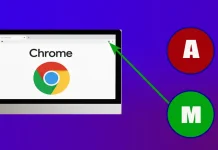In the beginning, Samsung TV owners were seeing ads for new streaming content, apps, or Samsung products. Owners are now complaining about larger, increasingly obtrusive, and unrelated ads.
Towards the end of 2019, owners have started to voice their dissatisfaction with larger, increasingly obtrusive, and unrelated ads showing up on their Samsung TVs. These include ads for canned beans or discount supermarkets such as the one embedded below or the one shared on Samsung’s community boards here.
Not exactly a popular fact, but if you remove the smart functionality from a smart TV, it becomes more expensive. The fact is that TV manufacturers are tightly involved in the industry of content, advertising, marketing, data-mining, and trading of user data. These platforms are catching up with Google and Apple regarding the amount of data collected.
Is Samsung the best in marketing
As you know, at the heart of all marketing is the most important component – advertising. That is, Apple should only be grateful for its success in advertising, on which it spends millions of dollars. Whether this is true or not isn’t for us to decide, but I suggest looking at Apple’s main competitor today and its advertising budget.
You’ve probably guessed that we’re talking about Samsung. The advertising campaign for the Galaxy smartphones last year was particularly intense. Recall the countless bantering videos in which the company mocks users of Apple products standing in line, demonstrating how easy and simple it is for Android to navigate from point “A” to point “B” and how complicated this procedure is in iOS.
We, those who use iOS, have repeatedly ridiculed Samsung and the very idea of such an advertising campaign, but the Koreans should be given credit – they do their job perfectly. And all because the average budget invested by Samsung in the promotion of its product through advertising, exceeds that of Apple by 400%.
Read Also:
- Samsung TV AU8000 vs Samsung TV AU8100: What is the difference?
- Samsung TV AU8000 vs Samsung Q80A: Which one should you buy?
Who is Samsung’s advertising aimed at
Sometime in 2016, Samsung began pushing a software update to enable ads in the user interface of previously acquired Smart TVs as well as new TVs. The ads were shown above a new icon in the bottom menu.
The move upset some owners of Samsung TVs while others accepted it. Back then, the ads related mostly to new services (such as GameFly), new content from close partners (such as Google Play or Amazon Video), new movies in theaters (such as Angry Birds 2), Samsung’s own services (such as TV Plus) or its own products (such as Galaxy smartphones).
Perhaps this is a calculation for a loyal audience, who are ready to buy these products and only need to be told about them, except that the advertising campaign and the well-founded hype in the media are so powerful in informing the world about the novelty that it is simply impossible not to know about it.
How Samsung Smart TVs are making relevant ads
The Washington Post conducted a little experiment and tracked how four major TV manufacturers record everything we watch. The network traffic of Samsung, LG, Vizio, and TCL TVs was studied with Princeton University’s IoT Inspector.
The average American spends 3.5 hours a day in front of a TV. The TV viewing history does not contain sensitive search queries or financial data, but this history allows for a detailed profile of the consumer. This is valuable information for advertisers, for which they are willing to pay.
And TV manufacturers are taking advantage of this opportunity because, legally speaking, tens of millions of TV buyers have given their permission to collect this data by not unchecking the appropriate menu items during installation.
A test by IoT Inspector showed that TVs actively send data to the server not only when running apps, but even while watching live TV.
Is everything voluntary
90% of TV buyers voluntarily agree to have their screenprints taken and the data sent to a server. Zeev Neumeier, the inventor of ACR technology, says that most viewers don’t care, and some are even happy to help the TV industry. At the same time, Neumeier makes no secret of the effort it took to get the FTC to agree on this particular design for the window with the “Accept” button. The engineer jokingly calls this menu “an achievement he will tell his grandchildren about.
On Samsung TVs, the permission for ACR is hidden in the “Terms and Conditions” menu. The “I agree to everything” option is also pre-selected and it is not even immediately clear that you can opt out of ACR. Probably, Samsung has an even higher percentage of “volunteers” who send information to the server than Vizio does.
According to Neumayer, with better data, we will get more relevant advertising, and TV networks will earn more money, which could lead to a better quality of TV programs and perhaps even fewer commercial breaks.
Surveys of users have shown that most of them really don’t realize the full extent of profiling and see nothing wrong with a company finding out what series they like to watch on TV. Some responded that “Google already knows everything about us,” so there’s nothing to hide.
Anyway, practice shows that it is one of the additional ways to monetize TVs after they are sold to manufacturers.
Read Also:
Is it possible to run ads on Samsung TVs by yourself
Samsung now has an advertising platform that brands can use to launch their own campaigns on the brand’s smart TVs. For the South Korean corporation, it is a logical step to expand its advertising business, which covers TV, mobile devices, and desktops.
Tom Fochetta, vice president of advertising sales and development at Samsung Ads, believes that the future lies with Smart TV with a direct connection to the Internet, rather than with cable networks and devices like Roku, Amazon Fire TV, or Apple TV. Samsung TVs now support most of the apps that are also available on Fire TV and Roku set-top boxes – such as Crackle, Tubi, Pluto TV, Disney+, Peacock, or HBO Max.
The corporation has been in the advertising business for five years. Its service offered the possibility of automatic purchase of video content (programmatic), but so far the launch of campaigns on smart TV required the participation of managers. The self-service platform allows you to do everything yourself, according to Ad Age. In particular, to buy ads in real-time on an auction model.





